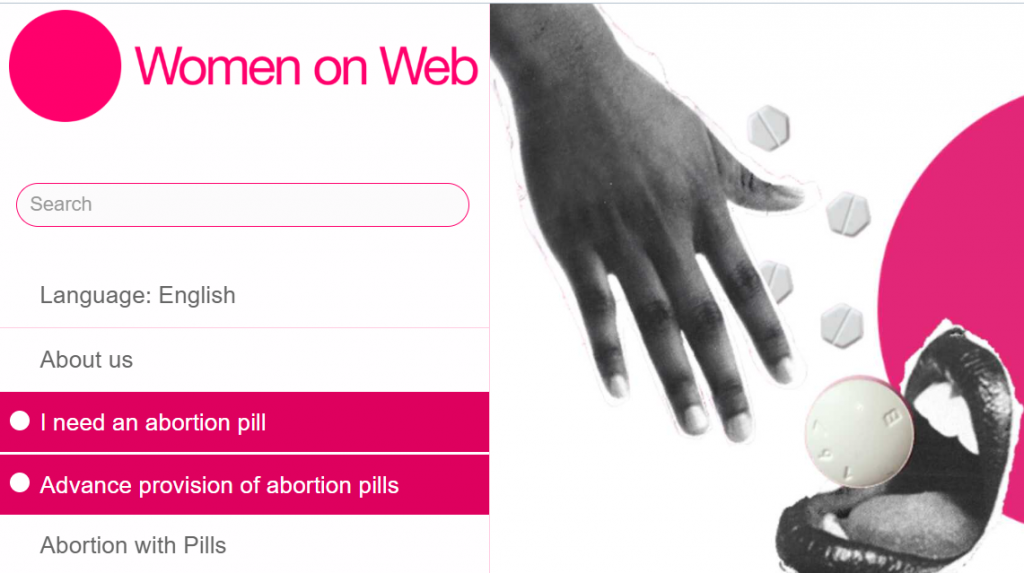How rights group Women On Web is resisting digital attacks on reproductive rights
By Venny Ala-Siurua Published 10-14-2022 by openDemocracy

Screenshot: Women on Web
More and more people are looking on the internet for information about sexual and reproductive health and accessing these services online. For young people, the internet is an important, if not the only, resource for this information. This is why criminalising and restricting abortion is not the only way to attack abortion rights today. Limiting or banning information about abortion or putting out deliberately confusing material can have a devastating impact on abortion access.
Since 2005, Women on Web, where I am the executive director, has used the internet and digital technology to break down the barriers. We have provided more than 100,000 safe medical abortion services. Our website offers comprehensive and easy-to-read information about abortion in 27 languages and our multinational helpdesk team has responded to more than a million emails in 16 different languages in the past 17 years.
The internet has enabled us to reach those previously excluded from accessing services because of legal restrictions and cultural and social norms. We have been able to provide them with much-needed privacy, anonymity, and increased control over the abortion process. The internet has enabled us to challenge the power relationship between patient and provider. We have been able to reframe the provider’s role altogether by putting abortion pills directly in the hands of the people who need to end unwanted pregnancies.
Governments have not been able to stop abortions by introducing restrictions and abortion bans or closing down clinics. On their own, people can learn about the abortion pill and self-management. More and more safe abortions are taking place at home, regardless of the laws. Interventions by the likes of the World Health Organization have contributed to a fundamental shift in public perception of conditions considered safe for an abortion – at home vs under medical supervision. In this rapidly changing abortion landscape, access to accurate and unbiased information plays a critical role in helping people obtain safe abortions.
Governments and anti-abortion groups are doing their best to prevent people’s access to reliable abortion information by censoring websites and spreading disinformation.
In Spain, the government blocked our website at the beginning of the COVID-19 pandemic,a time of rising demand for online services. It had a resource for many people, especially migrants and youth, who did not know how to navigate the health system and access legal abortion services. The Spanish government did nothing to plug the information gap after our website was blocked and anti-abortion websites and disinformation filled the vacuum.
We filed a lawsuit along with Women’s Link Worldwide, a transnational feminist organisation that uses the law to advance the human rights of women and girls. Our case is about defending the right to information on the internet about sexual and reproductive rights and services, especially safe abortion. The Supreme Court of Spain has ruled in our favour and ordered the partial unblocking of our website. In its ruling, the court recognised that the blocking of a website without judicial authorisation should not have happened and was a disproportionate measure.
The court’s view – that the information, recommendations, and opinions on sexual health and reproductive rights on our website are protected by the right to information and freedom of expression – is key. It creates an important judicial precedent because it establishes that judicial authorisation is mandatory when blocking the type of content we provide.
Moreover, the Supreme Court of Spain went further and reaffirmed the importance of organisations that promote sexual and reproductive rights.
The decision from Spain gives us the strength to carry on as we fight similar lawsuits in Turkey and South Korea, where many of our websites are blocked. It also gives us the courage to continue to challenge the suppression of digital information about sexual and reproductive health.
The US Supreme Court’s revocation of legal protections for abortion earlier this year is emboldening anti-abortion governments and groups around the world. The challenges we face doing digital abortion rights work are an extension of our day-to-day physical world. Therefore, it is important we continue to work at the intersection of digital rights, sexual health and reproductive justice. The freedom to produce, disseminate and receive information on the internet is crucial for abortion access and reproductive autonomy.

